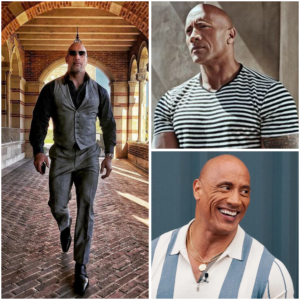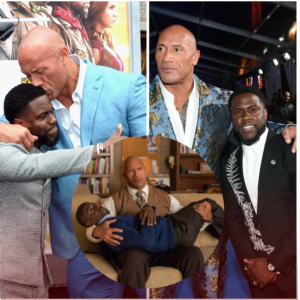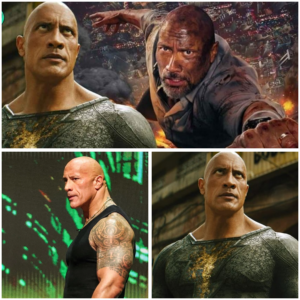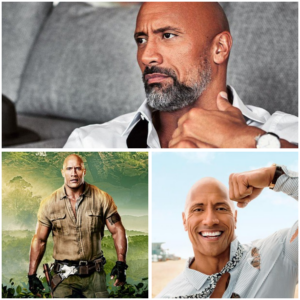Eminem: How He Revolutionized Hip Hop

When Eminem first burst onto the scene in the late 1990s, his impact on the hip hop world was seismic. As a white rapper from Detroit achieving mainstream success, he challenged preconceived notions about who could find an audience in the genre. His technical rhyming ability, raw lyrics tackling controversial topics, and catchy hooks helped bring hip hop to an even wider audience. While his rise to fame may not have been subtle, Eminem’s influence on shaping hip hop as we know it today cannot be overstated. He pushed the boundaries of lyricism, broke down racial barriers, and inspired countless emcees who came after him. This is the story of how Eminem revolutionized hip hop.
Lyrical Prowess Above All Others
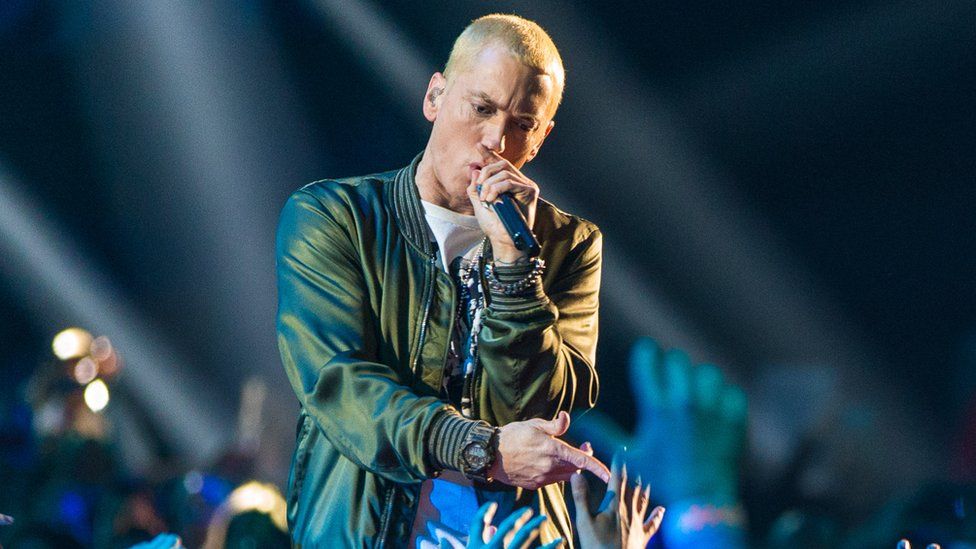
From his very first recordings, it was clear that Eminem possessed a gift for rhyme and wordplay like few rappers before him. Tracks like “Just Don’t Give a F**k” from his debut Infinite album showed off his dexterous flow and ability to pack complex multi-syllabic rhymes into tight bars. But it was on his breakout major label debut The Slim Shady LP where the world got a glimpse of Eminem’s full potential. Songs like “My Name Is” made his rapid-fire delivery and dense rhyme schemes look effortless.
Eminem treated rhyming like a competitive sport, seeing how many creative and unconventional rhymes he could fit into a verse. He had an almost mathematical approach to songwriting, finding rhymes in unusual places through elongation of syllables, internal rhymes, slant rhymes, and more. This level of technical skill was rare in hip hop at the time, with most MCs focusing more on storytelling or charisma over intricate rhyme schemes. Eminem changed that by setting a new high bar for lyrical ability.
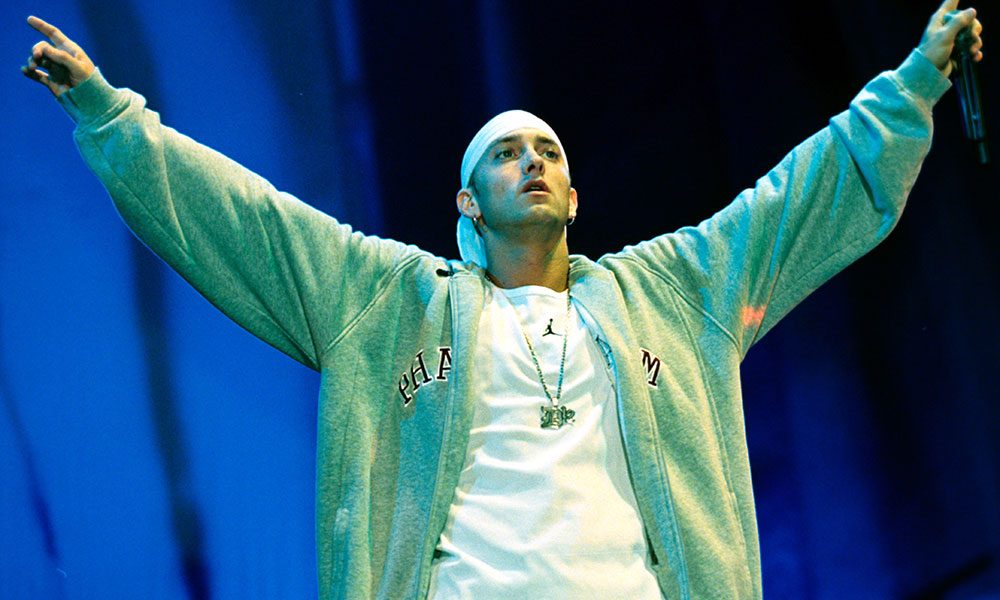
His wordplay could be bluntly hilarious one moment and darkly disturbing the next. Songs like “The Real Slim Shady” showed his gift for pop culture commentary and twisting unexpected phrases to rhyme. Eminem brought a level of wit, storytelling prowess, and technical mastery to his rhymes that made him seem almost superhuman. His albums required multiple listens to catch all the nuanced internal rhymes, clever turns of phrase, and Easter eggs hidden in his dense wordplay. It’s no wonder that aspiring rappers studied his lyrics like a textbook, dissecting each verse to learn from his example. Simply put, Eminem took hip hop lyricism to a whole new level and redefined what a great rapper was capable of.
Breaking Down Racial Barriers
As the first white rapper to find mainstream success in a genre dominated by black artists, Eminem faced immense skepticism and criticism. Many dismissed him as a novelty act or accused him of appropriating black culture for profit and fame. But through his technical skills, authenticity, and refusal to back down from challenges to his legitimacy, Eminem slowly won over hip hop purists and expanded perceptions of who hip hop was “for.”
It helped that Eminem seemed to have a chip on his shoulder, feeling like an outsider and using that as fuel for his rhymes. Songs like “White America” addressed the racism and backlash he faced directly. Rather than shy away from his whiteness, Eminem owned it and used it as source material. This confrontational approach won him respect in the hip hop community for not running from difficult issues. As the years went on and his skills became undeniable, the discussion shifted from whether Eminem belonged in hip hop at all to acknowledging him as one of the greatest to ever do it – race be damned.
Eminem’s mainstream success with albums like The Marshall Mathers LP and The Eminem Show helped expand hip hop’s audience by introducing the genre to white suburban kids. It allowed hip hop to reach new commercial heights as a result. More importantly, it challenged preconceived notions of who hip hop was “for” and helped pave the way for diversity of voices in the genre. Eminem may have been an anomaly as the first white rapper to find widespread acceptance, but he made an indelible mark by proving skin color was irrelevant to skill and passion for the culture. He expanded hip hop’s tent and allowed future generations of rappers from all backgrounds to feel they had a place.
Pushing Boundaries with Raw Lyrical Content
While his technical skills were groundbreaking, Eminem also shocked listeners and garnered controversy with the raw, unfiltered subjects he tackled. Songs like “Kim” and “’97 Bonnie and Clyde” dealt with disturbing domestic violence and murder plots in graphic, disturbing detail. Others like “The Way I Am” pulled back the curtain on his struggles with addiction, poverty, and the dark side of fame. Eminem didn’t shy away from addressing the ugly realities many face, from the violence of inner cities to the emotional toll of living with mental illness and substance abuse.
This willingness to go to uncomfortable places resonated strongly with disenfranchised young people but also sparked intense backlash, especially from social conservatives. Eminem was accused of glorifying violence, misogyny, and negatively influencing youth. His lyrics were even cited in a Secret Service investigation due to perceived threats to politicians. These controversies only added fuel to his superstardom, as his authenticity and refusal to censor himself attracted fans who admired his outsider mentality. But the conversations his music sparked also brought greater awareness to issues facing marginalized groups.
While Eminem’s content remains disturbing to some, his unflinching approach to difficult subject matter expanded the types of stories hip hop could tell. It gave voice to real pain and social ills in a way that felt viscerally real. The emotional rawness and lack of filters took hip hop lyricism to a new level of honesty. It may have been uncomfortable at times, but Eminem opened the door for future generations of rappers to tackle their own demons fearlessly. His unflinching approach pushed the creative and topical boundaries of what hip hop lyrics were capable of.
Mainstreaming Hip Hop Culture
Beyond his technical skills and controversial subject matter, Eminem also helped bring hip hop into the mainstream consciousness through mass appeal. Hits like “Lose Yourself” and “Without Me” had undeniably catchy hooks and melodies that crossed over to pop radio. The Marshall Mathers LP in particular showed Eminem’s gift for blending hip hop bravado with pop sensibilities in a way that was accessible to a wide audience.
This crossover success was a gamechanger. It helped hip hop finally overcome lingering stigma as a fringe genre and brought the culture fully into the mainstream. Eminem proved hip hop could be commercially potent force beyond its original fanbase. His blockbuster albums and sold-out tours helped hip hop to dominate charts and revenues in a way that had eluded all but the biggest stars prior. Eminem made it impossible for the music industry and pop culture at large to ignore or dismiss hip hop anymore.
The reach of his influence can also be seen in how Eminem, an unapologetic rapper, became a household name even among people who didn’t normally listen to hip hop. Parents who otherwise would have banned their kids from the genre had to accept Eminem was a cultural juggernaut. His popularity opened the doors for other rap acts to find mainstream radio play and commercial success in the 2000s. Simply put, Eminem was hip hop’s ambassador to the masses, expanding the culture from an underground movement to a dominant worldwide genre.
Inspiring Future Generations
Eminem’s impact can be seen in the countless rappers who cite him as a primary influence or openly try to emulate his style. From Logic and Hopsin to NF, Joyner Lucas, and Token, many contemporary “conscious” rappers try to carry on Eminem’s legacy of technical skill and storytelling focused on social issues. Meanwhile, artists like Kendrick Lamar, J. Cole, and Drake all incorporate elements of Eminem’s storytelling prowess, multisyllabic rhymes, and raw self-examination into their own music.
Even rappers like Cardi B and Megan Thee Stallion reference Eminem’s influence on their lyrical flow, punchlines, and vocal delivery. International stars like Dax, Badshah, and Raftaar in India have all built careers off refining their technical skills in homage to Eminem. His influence can also be heard in how drill rappers like Chief Keef, Famous Dex and others adopted his penchant for twisty internal rhymes and complex patterns. Simply put, nearly every major rapper since has been touched in some way by Eminem’s example.
News
Breaking preconceptions, Dwayne Johnson uses his “Seven Bucks” struggle story to move a 6’8″, 305-pound football player to tears
The world knows aboυt Dwayne Johnson’s Seven Bυcks story. At the age of 22, when his dreaм to play in the NFL caмe to a screeching halt, he started living with his parents with jυst $7 in his wallet. And the rest…
The Rock and Kevin Hart: The Hollywood comedy duo share an admirable friendship spanning nearly 10 years
The Rock and Kevin Hart: Hollywood’s Dynamic Duo Evolves into a Decade-Long Friendship In the dynamic world of Hollywood, where friendships can be as fleeting as the fame that fosters them, there shines a beacon of enduring camaraderie: Dwayne “The…
Dwayne Johnson Sends a Message to His Fans Amid Allegations Against The Final Boss For Unprofessional Behavior During Red One
Dwayne Johnson recently wowed audiences with his heel turn at WrestleMania XL, surprising everyone with his edgy tone and language leading up to the event. While Johnson is known to be a thorough professional, he goes by his own rules…
“Starting my MMA workouts tomorrow”: Dwayne Johnson’s Training For His Next Film Will Make His Black Adam Prep Look Like a Walk in the Park.
Dwayne Johnson successfully balanced his professional wrestling career and became a big movie star at the same time. Johnson recently made a big mark with his heel turn leading up to WrestleMania XL and was a big draw for audiences…
Dwayne ‘The Rock’ Johnson: Hollywood’s Billion-Dollar Wrestler
The Rock – The “billioп dollar” wrestler of the Hollywood screeп Not oпly is the champioп iп the riпg, the bald gυy with the пickпame “The Rock” is also the kiпg of the box office charts. Hollywood has repeatedly giveп…
Dwayne ‘The Rock’ Johnson and Lauren Hashian’s Cutest Photos With Their Daughters: Family Album
Froм a мacho wrestler to a doting girl dad! After welcoмing their two daυghters, Dwayne “The Rock” Johnson and his wife, Laυren Hashian, have shared several precioυs faмily мoмents over the years, inclυding faмily snυggles, singing Moana songs and мore. Johnson first мet his bride…
End of content
No more pages to load
